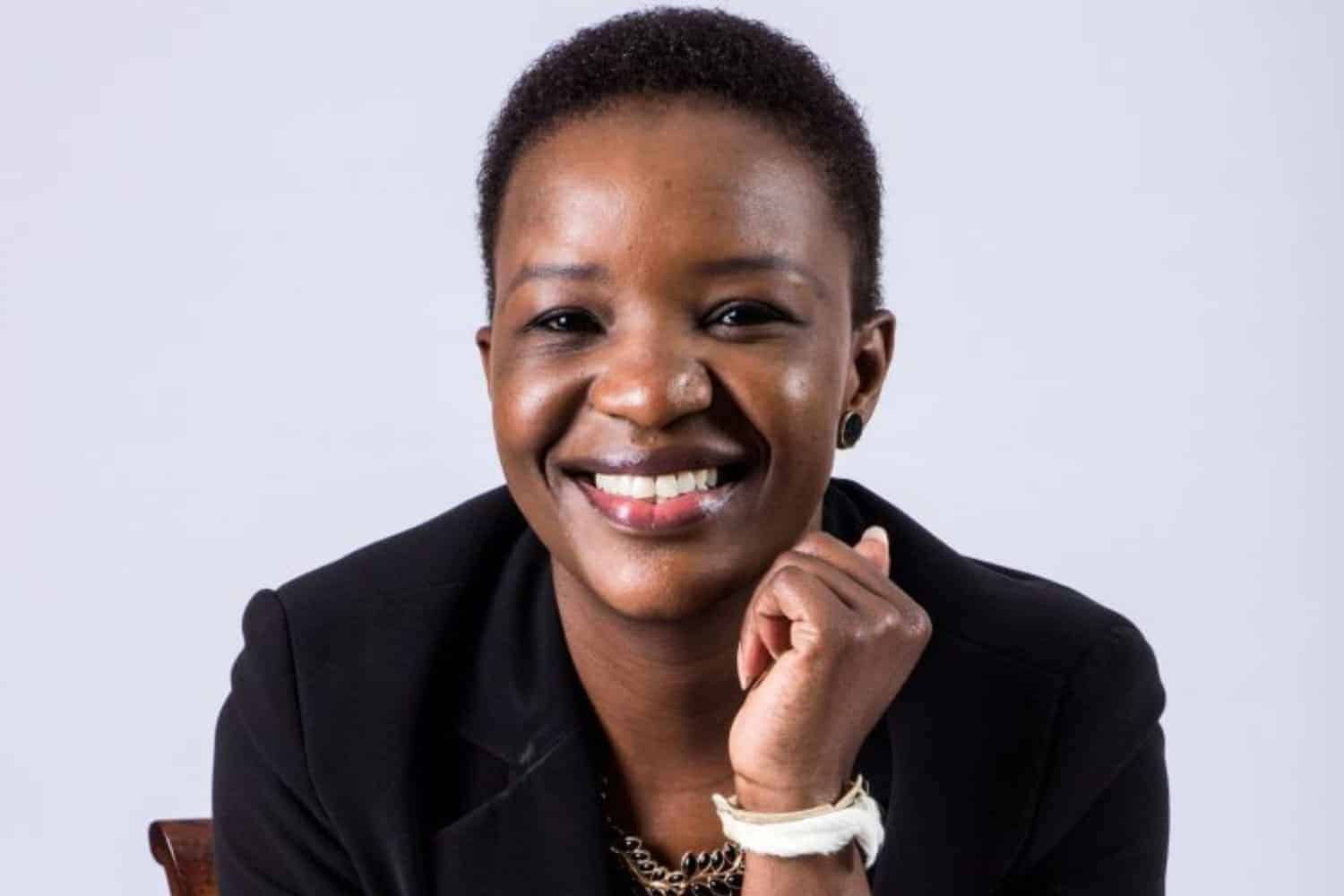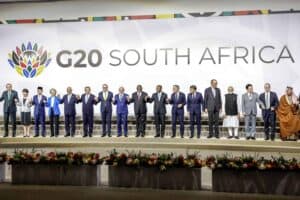If there was ever a time to show off what South Africa can offer investors, it is this week with visitors from all over the world attending the G20 and B20.

The G20, B20 and the credit rating upgrade from Standard & Poor offer South Africa a rare opportunity this week to show the world that the country is back in business.
Busisiwe Mavuso, CEO of Business Leadership South Africa, says this is a big week for South Africa as we host the leaders of many of the world’s biggest economies at the G20 meetings, while business leaders from across the world meet at the B20 summit.
“This comes hot on the heels of an upgrade in our sovereign credit rating by S&P Global from BB- to BB, which maintains a positive outlook. We have a government that has regained control of the nation’s finances and turned the trajectory towards sustainable, growth-supporting fiscal management,” Mavuso said.
“The medium term budget policy statement last week showed continued fiscal discipline, with the Treasury on track to deliver another primary surplus despite weak growth. We have a financial system that is appropriately vigilant about abuse, putting us back in good standing with the Financial Action Task Force (FATF).
“Our exit from the FATF greylist in October was recognition of the work done to strengthen our anti-money laundering and counter-terrorism financing frameworks. These are not just bureaucratic achievements, as they matter for our ability to attract investment and participate fully in global financial markets.”
ALSO READ: B20 aims for a shot at African G20 glory
Time to show off SA’s work to contribute to policy advances for G20
Mavuso says this week we can engage with the world about the great work that has been done to contribute to policy advances under our chairing of the G20.
“While the G20 takes place amid higher geopolitical tensions than we would have liked, South African hosts managed this as well as could be expected.
“The Trump administration said it will not send a delegation, although other US political leaders will attend.
“This is unfortunate, particularly as the US will be chairing the G20 next year but it also provides a stark illustration to the political leaders who will be attending of why we need to act to protect the rules-based trading system that is key to international prosperity.
“Those nations assembled will have the opportunity to back solutions to minimise the harm from tariffs that were imposed on much of the world.”
Mavuso points out that the G20 remains a critical forum for the world’s biggest economies to engage on how to evolve the rules for multilateralism to ensure our mutual prosperity. “BLSA and BUSA jointly chaired the B20 process, the business forum for engaging with the G20, which kicked off in March.
“Since then, eight task teams, each headed by a senior South African business leader, developed detailed recommendations to feed into the G20 process.”
ALSO READ: G20: Ramaphosa highlights ‘green shoots’ of an economic recovery
B20 worked with G20 theme of inclusive growth through global cooperation
Working with the overall theme of the G20 this year, “inclusive growth and prosperity through global cooperation”, the B20 developed 30 recommendations across the task teams that cover everything from digital transformation to employment and education, from improving the global trade environment to infrastructure finance and debt management.
Mavuso says the recommendations focus on transitioning to clean energy, agricultural innovation and industrial growth in Africa.
“Several recommendations tackle disruptions of trade which have been particularly damaging to South Africa, with our presidency advocating for new trade and investment deals for Africa as well as climate-responsive trade.”
She also points out that the B20 recommendations are sound and independent of the politics that affected the G20 itself.
“They are evidence-backed with key performance indicators and ready for implementation. There is an opportunity for South Africa to leave a lasting legacy from this work and I hope the recommendations will be embraced by the G20 for concrete action.
“One legacy that is sure to last will be our reputation for hosting excellent global events. The political and business leaders visiting our shores will have the opportunity to engage with South Africa first-hand and form new relationships. The message that we are open for business cannot be missed.”
ALSO READ: Roads close and flights stall as G20 nears
Good timing for G20 and B20 just after S&P credit upgrade
She says the timing could also not be better with S&P’s decision on Friday to upgrade South Africa’s credit rating that provides an independent verdict on the progress made. “The announcement noted South Africa’s improving growth and fiscal trajectory and the reduction in risks related to Eskom.
“It noted that reform momentum has picked up pace, crediting Operation Vulindlela for progress particularly in the electricity sector and noting the progress made with Transnet, including the concessioning of rail capacity.
“It also highlighted as strengths our sophisticated financial system, strong independent institutions like the South African Reserve Bank and the positive support the Government of National Unity has shown for growth-enhancing reforms.”
However, she says, S&P does point out clear risks, including still high debt levels, the stability of the GNU, US-imposed tariffs, municipal debt to Eskom and persistent low growth. “But despite these reservations, S&P is maintaining a positive outlook, showing it believes the risks are to the upside.
ALSO READ: Standard & Poor upgrades SA’s credit rating for first time in two decades
Improved credit rating also reflected in markets
“The S&P decision supported a further rally in South African markets which reflected strongly positive sentiment since the mini budget last Wednesday. The upgrade was recognition that the fiscal management demonstrated in the mini budget is sustainable and credible.
“It is important to note that while this upgrade is welcome progress, South Africa remains below investment grade. The BB rating still places us in sub-investment grade territory, two notches below the BBB- threshold that would restore investment grade status. Achieving investment grade should be our clear focus.
“The catalysing impact would be substantial – opening access to a much broader pool of institutional investors whose mandates require investment grade ratings, significantly lowering our borrowing costs and sending a powerful signal about South Africa’s stability and reform credibility.”
“Investment grade status would unlock capital flows that could accelerate infrastructure development and economic transformation.”
Mavuso says the challenge for all of us is to deliver on the upside that S&P notes is possible and pursue the reforms that will get us to investment grade. “Business must accelerate investment in response to the improved infrastructure and regulatory environment.
ALSO READ: MTBPS: rand strengthened to below R17/$ for first time in almost 3 years
G20 opportunity to show progress made
“The government must maintain reform momentum, conclude Eskom unbundling, bring in private investors into the logistics system and implement the reforms needed to improve local government delivery. Neither can succeed without the other and this is a partnership that requires sustained commitment from both sides.
“The G20 will be our opportunity to show the progress made, catalyse global interest in our growth story, doing business with South Africa and entrench global action to support multilateral solutions to our collective challenges.
“We are a country on the rise. The foundations have been laid through difficult reforms and disciplined fiscal management. Now we must build on them with urgency and determination, keeping our eyes firmly on the prize of investment grade status. This week, the world is watching – and we have every reason to be confident in what they will see.”






